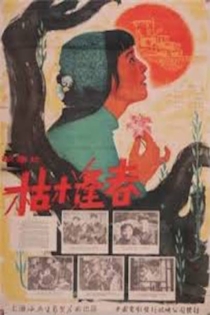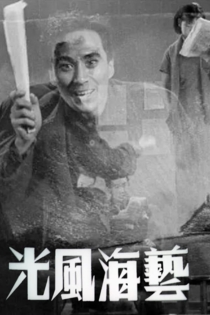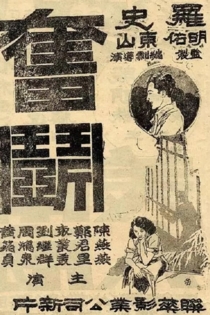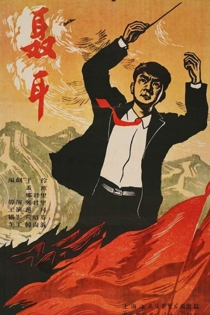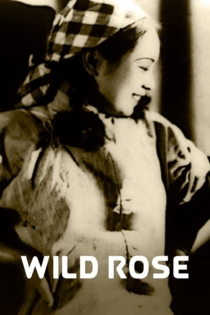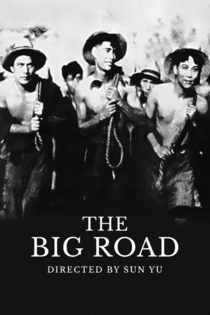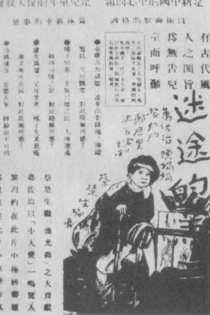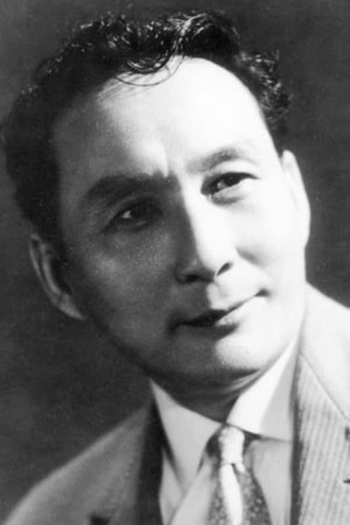
Zheng Jun-Li
1911 - 1969一江春水向东流
Zheng Jun-Li, Cai Chu-Sheng
Yang Bai, Xiuwen Shu
1930's China. The village of a poor family is taken over by the occupying Japanese army. One son, Zhongliang, leaves his wife and young son to join a medic group for the Chinese Army. The other son, Zhangmin goes into hiding to protect his family. The focus shifts back and forth from the brothers' parents and Zhongliang's wife and son to Zhongliang's newfound life of luxury in a town not too far away. The plight of Zhongliang's mother, his wife, Sufan and her son, Kongeson is contrasted with Zhongliang's rise in a flourishing company.
The Spring River Flows East
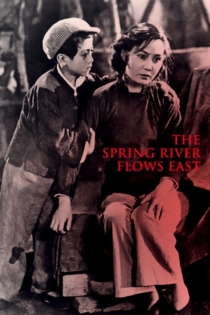
烏鴉與麻雀
Zheng Jun-Li
Zhao Dan, Wei He-Ling
At a Shanghai apartment, Mr Hou, a Nationalist official, gets ready to move to Taiwan upon the imminent defeat of the KMT during the Civil War. Mrs Hou gives an ultimatum to the rest of the tenants to move out on behalf of her husband, who is the "owner" of the flat and who is now planning to sell it. From the conversations with the rest, we find out that Hou has been a Hanjian during the Sino-Japanese War and that he has since taken over the apartment by force from the old landlord, Mr Kong. The tenants, including Mr Kong, Mrs Xiao, Little Broadcast (alias Mr Xiao, played by Zhao Dan) and a schoolteacher, Mr Hua, and his wife, initially plan to band together, but circumstances force them to find other ways out. Mr Hua tries to find a place to stay at the KMT-sponsored school he is teaching in. Little Broadcast and Mrs Xiao invest in black market gold. As the situation escalates, Mr Hua gets arrested by KMT agents and his young daughter falls desperately ill.
Crows and Sparrows
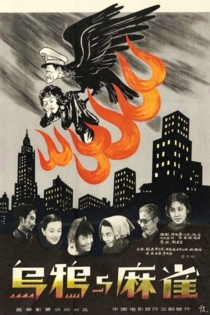
新女性
Cai Chu-Sheng
Ruan Lingyu, Moqiu Wang
Overnight, the sexy Wei Ming will become a successful novelist. But, desperate to get the money that she needs to cure her little daughter (and harassed by a rich, unscrupulous rake), she will end up eventually engage in luxury prostitution.
New Women
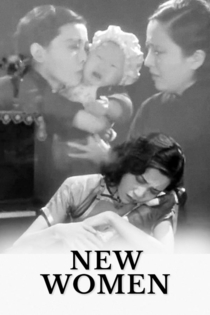
Huoshan Qingxie
Sun Yu
Lili Li, Zheng Jun-Li
A warlord's nephew lusts for farmer Song Ke's sister. When Song refuses, the whole family is thrown into jail and the sister commits suicide. The father dies of grief and Song lives with his cousin abroad. The warlord's nephew loses power and also escapes to the same country.
Loving Blood of the Volcano
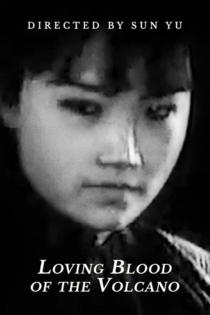
鴉片戰爭
Cen Fan, Zheng Jun-Li
Zhao Dan, Zheng Gao
China 1839. Because the British imports of opium into Southern China are creating such widespread medical and economic problems, the weak Manchu emperor Tao Kuang is forced to take action that precipitates the 'Opium War'.
The Opium Wars
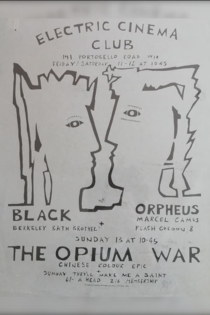
國風
Lo Ming-Yau, Zhu Shi-Lin
Lin Chu-Chu, Lili Li
In 1930, two sisters from the countryside, the serious Zhang Lan (Ruan Lingyu) and the frivolous Zhang Tao graduate from the secondary school where their mother Zhang Jie serves as principal. They both love their cousin Zuo, but have ambitions other than marriage. Their lives change dramatically when both attend university in Shanghai and encounter modern urban life and rapidly changing society. The film also depicts the emergence of Chiang Kai-shek's 1934 New Life Movement. Lianhua Film Studio did the film to appease the Nationalist Party which accused it of primarily presenting left-wing films, which was true.
National Customs
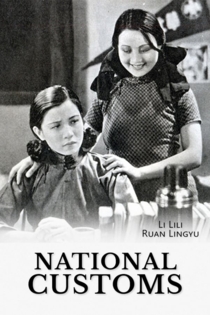
我們夫婦之間
Zheng Jun-Li
Zhao Dan, Tianliu Jiang
An absorbing example of genre filmmaking in the People’s Republic of China, Husband and Wife could at first glance be mistaken for any other romantic melodrama chronicling the rise and decline of a married couple’s love; here, though, that love takes place in (and is entirely defined by) a realm of political upheaval and Maoist ideology. A Shanghai intellectual marries an illiterate peasant woman–turned–collectivist hero, with outcomes both universal (differences emerge) and specific (revolutionary self-critiques). At first a popular hit, the film (and Zheng himself) was soon critically attacked for counterrevolutionary, pro-bourgeois thought. Zheng even penned a confessional autocritique, but the damage to his career was done. (BAMPFA)
Husband and Wife
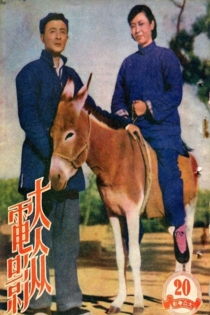
粉红色的梦
Cai Chu-Sheng
Zhangfei Gao, Ying Tan
Pink Dream tells the story of a young novelist who is supported by a loving and hard-working wife. The novelist, however, is drawn to the decadent life of a socialite who introduces him to the dance halls that dot Shanghai. As the film progresses, the novelist soon learns of the emptiness of this urban existence and rejects it as a "pink dream."
A Rosy Dream
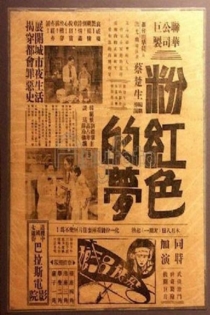
宋景詩
Zheng Jun-Li, Sun Yu
Wei Cui, Jin Tao
В середине XIX века, в разгар Опиумной войны, китайский народ восстал против феодального строя и маньчжурской династии, капитулировавшей перед иностранными интервентами. … Понурив головы, бредут закованные в кандалы крестьяне, те, кто отказался давать деньги для расправы с восставшими братьями. Неожиданно им преграждают дорогу. Это Сун Цзин-ши со своим отрядом пришёл на выручку. Освобождённые крестьяне присоединились к Сун Цзин-ши. Так образовалось ядро армии «Чёрного знамени». «Их вёл Сун Цзин-ши» — первый исторический фильм, созданный в социалистическом Китае 1950-х годов. Сценарий его основан на достоверном материале, собранном в деревнях провинции Шаньдун. В народе до сих пор живут легенды о жестокости Сэн Гэлиньцина и храбрости Сун Цзин-ши, которого называют «китайским Спартаком».
Song Jing Shi
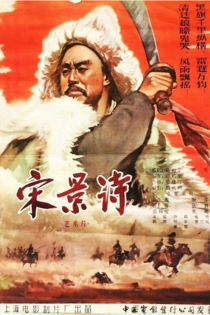
Kumu fengchun
Zheng Jun-Li
A critical hit during one of China’s most politically charged periods, Zheng’s follow-up to his 1959 anniversary epics merged Soviet-style socialist realism with his own breakthroughs in film technique, specifically his use of continuous camera movement in the spirit of traditional Chinese scrolls. Tractor-kino at its finest, the film revolves around two rural lovers—one struck with a deadly disease—and their eventual survival thanks to socialist medical advances.
A Withered Tree Meets Spring
